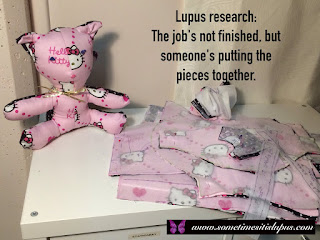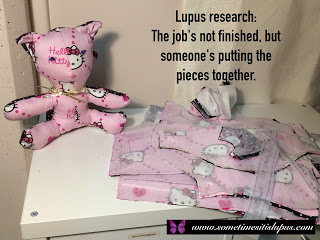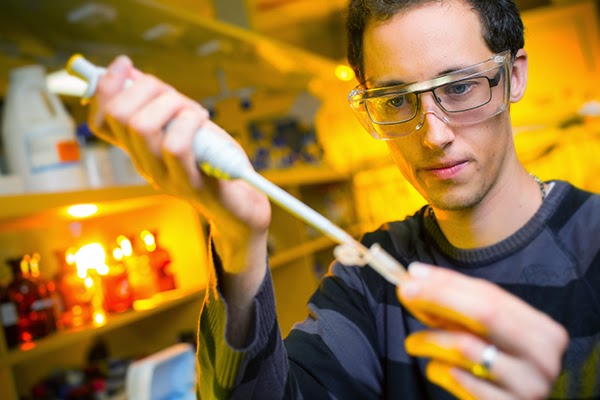| The Shade UV light sensor. It may not be the most attractive piece of jewellery you will ever wear, but I'm pretty sure it will be your favourite - because it can help prevent lupus flares. |
Sadly, ultraviolet light is one of those things it's almost impossible to avoid all together.
Biophysicist Emmanuel Dumont, PhD has developed a gadget that helps us control the amount of UV light we're exposed to.
(I've told you before my heroes wear lab coats. Dr Dumont, and his team are definitely heroes for lupus patients.)
The Shade is a sensor which detects and measures the amount of ultraviolet light we're exposed to each day.
You simply download the mobile phone app, pair the device up with your mobile phone, and attach the Shade to your clothes.
It's held on with a magnet, so it won't leave pin damage in your clothes. And this is a strong magnet, so even when a small grandchild jumped at me for a hug, it stayed firmly in place.
Each day, the phone app asks how you are feeling. After a while you can look at your history - how much sunlight exposure you've had each day, along with how you felt, to work out your personal limit. (Everyone's limit is different. Some lupies can handle more UV than others.)
Once your limit is set, the device will alert you when you've received 20% of your daily limit, or 40%, 60%, 80% and 100%.
As lupus changes all the time, you can change your limit if you notice the relationship between daily exposure and how you are feeling changes.
If you tell the device the SPF of your sunblock, it will take that into account in measuring your UV exposure.
The phone app gives you the option to talk to the Shade team when you have questions of problems. But really, the device and phone app are so easy to use, you probably won't need it.
You can find out more about the Shade, and how it was developed (and you can buy one) here https://www.wearshade.com/about.
The Shade won't replace your hat, sunblock and everything else you do to protect yourself from too much sunlight. But it will give you the freedom to know how much time you can safely spend outside, and a fair warning of when you are approaching your limit.
After a week of using it, I am totally in love with it. It's not the most attractive piece of jewellery I wear, but it's definitely the most useful. It's a great feeling to know that I can safely enjoy being out in the garden for a while, and know I'm not going to overdo my sun exposure.
If I had a magic wand or multi millions of dollars, I'd provide one for every lupie on the planet. As I don't have the money or the wand, all I can do is encourage you to acquire one for yourself.
Now we just need something to help us control everything else that can trigger a flare....
Disclosure: this is not a paid post, however, I was provided with the device free of charge to enable the review.
Update: More on the Shade Sensor














